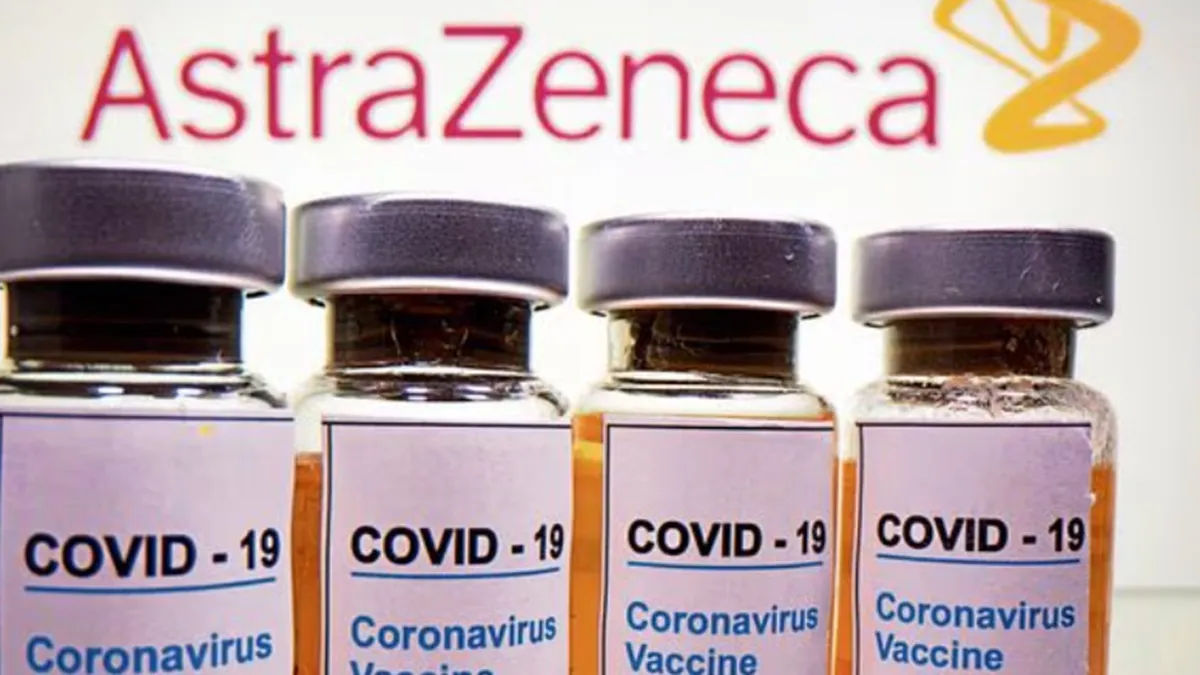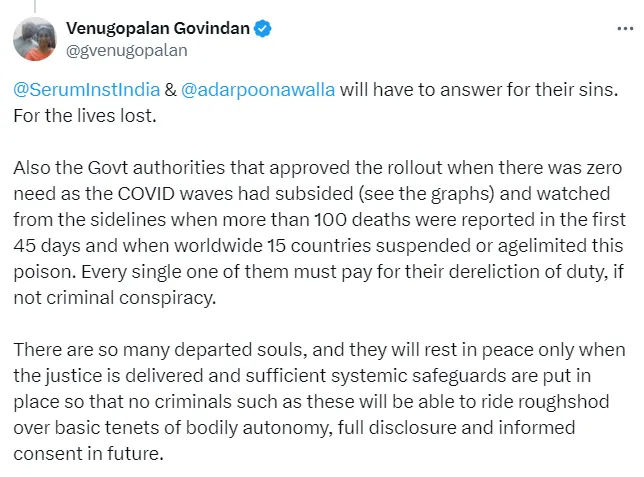Updated May 8th, 2024 at 09:37 IST
AstraZeneca Withdraws Covid Vaccine Globally Citing 'Commercial Reasons' Amid Side-Effect Row
Covid-19 vaccine, developed by AstraZeneca and Oxford University, was produced in India by the Serum Institute of India (SII) as Covishield.
Advertisement
New Delhi: Weeks after admitting that its Covid-19 vaccines may cause a rare blood related side-effects, UK-based pharmaceutical giant, AstraZeneca, has announced the withdrawal of the vaccines globally. In In India, the Covid-19 vaccine, developed by AstraZeneca and Oxford University, was manufactured by the Serum Institute of India (SII) as ‘Covishield.’
The pharma giant said that the decision to withdraw the vaccine was "commercial". "Surplus of available updated vaccines" was the reason behind the withdrawal, said AstraZeneca, as per reports. The company said that the vaccine is no longer being manufactured or supplied as it has been superseded by 'updates vaccines' capable of tackling new variants.
Advertisement
"With the development of multiple variant COVID-19 vaccines, there is now an excess supply of updated alternatives," remarked the company, noting a consequent decrease in demand for Vaxzevria, which is currently no longer in production or distribution.
AstraZeneca's Admission of Rare Side Effect
the UK-headquartered pharmaceutical giant admitted that in “very rare cases” its COVID-19 vaccine can cause a blood clot related side effect. AstraZeneca has made the significant admission in court documents, acknowledging for the first time since the rollout of its COVID-19 vaccine.

The company admitted that its COVID-19 vaccine can lead to a rare side effect called “Thrombosis with Thrombocytopenia Syndrome (TTS),” reported a London-based newspaper.
Advertisement
AstraZeneca along with the University of Oxford, has been embroiled in a class-action lawsuit which alleged that the COVID-19 vaccine developed by the company led to fatalities and severe injuries among recipients. AstraZeneca has conceded in legal documents submitted to the UK High Court that its vaccine "can, in very rare cases, cause TTS."
What is TTS?
Thrombosis with thrombocytopenia syndrome (TTS) is an extremely rare condition characterised by the combination of blood clots (thrombosis) and a low platelet count (thrombocytopenia). This syndrome is also known as vaccine-induced immune thrombotic thrombocytopenia (VITT).
Thrombosis refers to the formation of a blood clot, which can impede normal blood flow within a blood vessel. Thrombocytopenia is a condition marked by a deficiency of platelets in the blood. Platelets play a crucial role in blood clotting, helping to prevent excessive bleeding when injury occurs.
Advertisement
The consequences of TTS are potentially life-threatening including strokes, brain damage, heart attacks, pulmonary embolism and amputation.
Trouble for AstraZeneca in India
Trouble seems to be mounting on AstraZeneca in India as well, as parents of a 20-year-old woman have decided to sue the pharma giant. The girl had allegedly suffered side effects of the AstraZeneca COVID-19 vaccine which resulted in her death. The woman, Karunya, passed away in 2021. Her father, Venugopalan Govindan said the admission was "too late" and came after "so many lives have been lost".
The SII has not commented on the matter yet. In a post on X, Venugopalan Govindan said the SII should have stopped the vaccine supply after 15 European countries either suspended or age-limited these vaccines due to the deaths from blood clots that happened in March 2021. He said the grieving parents are fighting for justice in various courts, but are not getting a hearing for their cases.
Advertisement

Earlier, the World Health Organisation (WHO) has described the vaccine as “safe and effective for all individuals aged 18 and above”, with the adverse effect that has prompted the legal action being “very rare”.
Advertisement
Advertisement
Published May 8th, 2024 at 09:24 IST